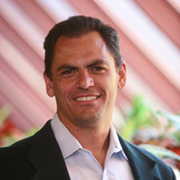Ryan Critchett dropped out of high school in Quakertown and joined the U.S. Army, serving from 2005-2008 as a specialist. As part of an elite level specialty scout platoon, Critchett spent a year in Baghdad, where he was a part of clandestine operations like house raids.
Not long after he completed his duty, Critchett started developing his entrepreneurial chops. Part of that included studying neuroscience and optimizing his brain for maximum productivity. That involves proper food consumption and meditation, which encourage bloodflow to the brain.
By 2011 he had launched his own computer repair shop that proved profitable but underwent a customer-induced pivot when customers began bringing in their iPhones and iPads for repair. Critchett painstakingly taught himself how to repair these devices and by last July, RMC Tech became iMobile Rescue, one of the fastest-growing repair shops of its kind thanks to a brisk online business that brings devices from all over the country to its modest shop in Bethlehem.
The company has grown from about $7,000 in monthly revenue in its first five months to more than $20,000, thanks in part to large jobs involving dozens or hundreds of iPads from school districts or other large organizations. Critchett has continued his study of neuroscience and fueling the brain for productivity and regularly blogs on such things at StartupCell.
The growth of your online business has been a game-changer. How have you managed that?
When we started to notice there was an opportunity to do online stuff, we turned into an e-commerce engine. I put in a lot of SEO work and did a lot of digital inbound marketing to get leads and make it happen. When we did that, we realized we could cut down a lot of the local business and get a lot of mail-in business. Everything is now 100 percent more efficient. We don’t even talk to customers on the phone. When devices come in, we fix them and send them back out. It started to become something that could sustain the business on its own.
And then schools started calling?
At the same time, we started getting a lot of inquiries from schools and companies who bought between 100 and 3,000 devices for their students or employees and would let those devices sit and pile up when they get broken because they didn’t have a solution for them. They’d call us and say ‘We have 65 broken iPads and don’t want to pay $249 to get each one fixed by Apple. That started happening last September.
iPhones and iPads are so enormously popular, how is there room for a guy in Bethlehem to become a major player repairs and service of these devices?
I think it’s a couple things. There are other players out there but the reason we were able to do it mainly had to do with our digital presence. In a former life and former business I spent a lot of time doing SEO and search engine marketing. I just did a lot of that marketing in conjunction with creating our own videos about tutorials that we did to show other people how to do it. I’m a little bit of everywhere on the web. I blog about brain performance and entrepreneurship, so I had a little buzz out there about who I am. So people knew me. And at the end of the day, people check prices and then call us.
Why the fascination with neuroscience?
That came about after the military. I started realizing the days I felt good I was more productive, and other days I felt like my brain wasn’t working. I tried to understand the science behind it. In Baghdad, I did raid and capture missions with intelligence agencies, worked in small elite specialty groups on high priority, high risk operations, as well as your everyday sector patrols.. so needless to say, my brain became inoculated to fear and crazy, stressful situations. I wasn’t afraid to take entrepreneurial risks because those risks couldn’t compare to anything I experienced in the military.
So your brain is pretty important to the company?
I think what has made this company succeed probably above all else is not my time in the Army, or the opportunity to be an iOS device repair company, not the fact that a lot of people break devices. It’s me being a founder that understands if I want to be productive I have to perform really well in my brain and have to eat the right things. It’s really my focus on brain performance and improving productivity that makes company do what it’s doing.
Did you take advantage of any local resources to help grow the business?
(Bethlehem coworking space) SoBeCoWorks was massively important. In times where I didn’t have an office and was sort of moving back and forth doing it at home and trying to get a repair center running, I worked from SoBeCoWorks and (owner) Santiago (Rivera) was really cooperative in helping me have a place to stay. I paid a membership fee but he let me slide on a lot of stuff.
Do you have any advice for entrepreneurs?
What makes companies succeed, at least in my experience, is founders being able to go, ‘OK, what do we need to do?’ It’s the identification of key impacts, and then ‘Let’s do it today.’ Would you want to hit a home run or just hit singles or foul balls? Always look for what is a home run.
How do you keep up with increasingly rapid changes in technology?
As new devices come out, we learn about them. We recently started fixing water damage on the iPhone 5. As more people get iPad minis, people are breaking them. We’re probably one of three companies in the country that are fixing iPad Minis right now. (Apple) basically made it so when you have to replace the screen you have to solder two major parts together to get the screen back on. It’s not something you have to do with other iOS devices. We have a technician who can do that. We’ve been able to win the iPad Mini repair race, so much so that people stay on our site and click through to buy repairs. If you type in ‘iPad Mini repair’ in Google, we show up first.
How do you plan to keep growing the company?
We’re going to be shooting for bigger companies with more devices. Recently we’ve established business with a company called Belly Inc. out of Chicago and their business model has something to do with a loyalty program. They give customers iPads. They have 5,000 devicds out there circulating around. They called us up to get 15 of them fixed and we did the job for them. They’re also getting between 2,000-5,000 iPad Minis in the next couple years. They’re totally our target. Additionally, there are schools. We did 65 iPads for Delaware Regional School District last month. They would have had to pay a lot of money to Apple if they were going to do it that way. They found us. It’s a clear indication that the business model works – we can profit and they save money.
— by Joe Petrucci


http://www.imobilerescue.com/
44 E. Broad St. Suite 35 Bethlehem, PA 18018


